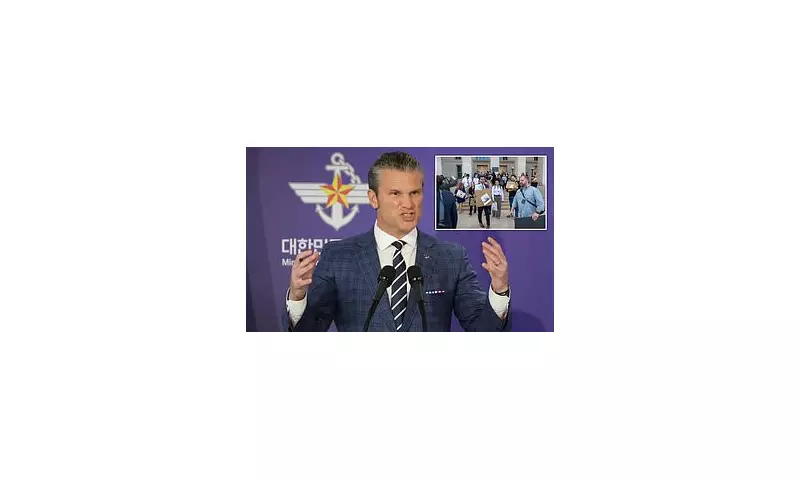
The US Department of Defense has ignited controversy by granting official press credentials to Fox News personality and former Trump supporter Pete Hegseth, raising questions about media access and political influence within military communications.
Security Clearance Amid Political Allegiance
The Pentagon's decision provides Hegseth with unprecedented access to defence facilities and briefings, despite his history of advocating for sweeping removals of government personnel perceived as disloyal to Trump's agenda. The move comes as defence officials face increasing scrutiny over their media relations policies.
Hegseth, a military veteran turned television commentator, has built his reputation on hardline conservative commentary and has repeatedly called for what he describes as a necessary 'purge' of government institutions. His new credentials will allow him to report directly from defence installations worldwide.
Media Ethics Under Scrutiny
Journalism watchdogs have expressed concern about the blurring lines between political commentary and objective defence reporting. "When commentators with clear political agendas receive the same access as neutral journalists, it challenges the very foundation of defence reporting," noted one media ethics expert.
The Pentagon has defended its decision, stating that Hegseth meets all necessary requirements for press credentialing and emphasising their commitment to working with diverse media outlets across the political spectrum.
Background of Controversy
Hegseth's military background includes service in Iraq and Afghanistan, followed by leadership roles in conservative veterans' organisations. His television career has been marked by:
- Strong advocacy for Trump administration policies
- Repeated calls for removing officials deemed insufficiently loyal
- Controversial statements about government reform
- Frequent criticism of what he calls the 'deep state'
The timing of this credential approval coincides with increased political tension surrounding defence policy and media access, particularly as the 2024 election cycle approaches.
Broader Implications for Defence Reporting
This development raises significant questions about how defence organisations manage media relationships in an increasingly polarised political landscape. The decision sets a precedent that could influence how other government agencies handle credentialing for politically-aligned commentators.
Defence analysts suggest this move reflects the ongoing evolution of military-media relations in the digital age, where traditional boundaries between news reporting and political commentary continue to shift.
The long-term impact on public trust in defence reporting remains uncertain, though the immediate reaction suggests this decision will fuel ongoing debates about media integrity and political influence within the defence establishment.





